Steevio est un acteur de la musique électronique depuis les années 80 ; ce personnage a vécu à Berlin avant la chute du Mur à une époque où « Kreuzberg était juste un gigantesque squat », il a aussi traversé l’Europe à l’âge d’or des raves et free parties et dirigé un club à Newcastle. Mais depuis quelques années, c’est principalement pour son label Mindtours, et le festival Freerotation qu’on le connaît. Artistiquement, il conçoit et crée une musique techno complètement improvisée sur une gigantesque installation modulaire unique en son genre. Accompagné de Suzybee, sa partenaire qui réalise les visuels lors de ses performances, il sera bientôt en France pour ses deux premières dates à la Concrete et à Nantes pour Input Selector. Nous avons eu la chance de nous entretenir avec ce grand monsieur.
Tu as fait quoi ces derniers temps ?
Vraiment un peu de tout, nous sommes toujours très occupés et nous avons plusieurs dates qui arrivent, sans parler de l’organisation du festival Freerotation qui demande beaucoup de travail. On passe huit mois de l’année dessus, nous venons aussi de commencer le label Freerotation avec beaucoup de sorties prévues. Je suis en studio le reste du temps.
The Hafod Jams vient de sortir, peux-tu m’en parler un peu ?
À l’origine c’était une idée de Soulphiction, lui et Move D sont résidents du Freerotation depuis le début et nous sommes devenus amis. Lorsqu’ils jouent en live, ces gars improvisent beaucoup, et particulièrement Juju, Jordash et Move D sous Magic Mountain High. nous avons donc pensé que ce serait une bonne idée de faire un gros jam. Après le festival en 2012, nous sommes revenus chez moi pour quelques jours. On avait aucune idée de ce que nous allions faire, on a installé l’équipement et commencé à jouer. C’était vraiment sympa, au bout d’un certain temps on a commencé à vraiment arriver à jouer et à partir de là nous avons tout enregistré. C’est environ six heures d’enregistrement, donc il y a encore pas mal de trucs à sortir.
Vous allez continuer à sortir sur le label Freerotation des extraits de ce jam ?
On va sortir d’autres morceaux de cette session, mais d’abord on veut sortir de la musique d’autres personnes. Des gens qui n’ont pas encore de sorties, on veut leur donner une chance de faire un disque.
Le Freerotation semble être le centre de votre travail, huit mois passés sur l’évènement, maintenant un label. Vous pensiez que ça vous prendrait tellement de votre temps quand vous avez commencé ?
Pas vraiment, j’organise des soirées depuis des années et j’ai fait partie du mouvement des free parties au Royaume-Uni pendant quinze ans. Tout a commencé avec des soirées qu’on organisait chez nous, dans lesquelles nous avons réussi à inviter quelques artistes connus. C’était des soirées pour les amis et les amis des amis, avec des artistes qui jouaient gratuitement. Ensuite ça s’est développé et c’est devenu trop de monde et trop gros pour notre maison. C’est à ce moment là que nous avons trouvé Baskerville Hall, et c’est simplement l’endroit parfait. C’est donc juste une grosse soirée et pas vraiment un festival, une soirée qui ne tient plus dans la maison dans laquelle elle se trouvait et qui maintenant se trouve dans une maison plus grande avec des artistes plus connus. Lorsque j’ai commencé je pensais que ça allait me prendre deux mois par an, mais c’est devenu compliqué et il y a tellement de travail en plus que je n’avais pas imaginé au début. Suzy m’aide car je n’arrivais plus à tout gérer seul, elle s’occupe du côté visuel du festival et je m’occupe de la musique, c’est comme ça qu’on fonctionne.
C’est important pour vous l’aspect visuel.
Depuis le début nous voulions faire un festival audiovisuel, mais c’est difficile de trouver des artistes qui font ce genre de performances. On a donc décidé d’inviter d’excellents Vjs et de les marier à de bons artistes, un peu comme une collaboration.
Vous avez donc des Vjs résidents qui viennent chaque année ?
Tous les Vjs viennent régulièrement, occasionnellement on a des nouveaux. Nous voulons juste de la qualité et des gens que nous trouvons originaux et adaptés pour Freerotation. L’ambiance est importante et nous essayons d’amener de l’énergie positive grâce à la musique, les visuels doivent donc refléter cela. Nous avons eu quelques expériences avec des imageries trop sombres et qui ne convenaient pas, nous considérons tous ces aspects.
C’est sans aucun doute pour cela que c’est un événement si particulier et pourquoi il est aussi difficile d’obtenir une place pour y aller aujourd’hui. Voyez-vous, j’ai essayé une fois de m’inscrire mais j’ai abandonné à cause du système d’invitation.
C’est malheureux, beaucoup de gens pensent que nous essayons de faire quelque chose d’exclusif, mais ce n’est pas du tout ça. Nous avons commencé en étant une toute petite soirée, tout le monde se connaissait. Nous avons décidé que tout le monde devrait pouvoir inviter ses amis. C’est devenu de plus en plus gros et lorsque nous sommes arrivés au maximum de la capacité du lieu, nous n’avons pas eu d’autres choix que de commencer à limiter. On peut y contenir jusqu’à 900 personnes et nous vendons uniquement 650 places car il y a les artistes et ceux qui travaillent sur le festival.
Vous étiez impliqué dans le mouvement des free parties, c’est quelque chose que vous avez essayé de recréer avec le festival ?
Exactement, au début Freerotation s’occupait de distribution. Nous avons arrêté car les ventes sont tombées drastiquement à l’époque. L’idée était de distribuer gratuitement les disques de petits labels, nous partions en voiture avec un van et faisions le tour du Royaume-Uni et des disquaires. Nous voulions aussi que le festival soit gratuit, et il l’était les premières fois, mais si nous voulions ramener des artistes par avion, il n’y avait pas de choix, nous avons dû commencer à vendre des places. Mais nous gardons le prix aussi bas que possible, les cachets sont très bas, et les artistes comprennent la philosophie du festival. Ils comprennent que nous ne pouvons pas donner autant que ce qu’ils peuvent recevoir lors de gros évènements avec sponsors. C’est une association à but non lucratif, nous sommes des anti-capitalistes qui viennent du mouvement des free parties avec ces ethos. Mais cela semble fonctionner, les gens aiment participer et un bon nombre de grands noms jouent gratuitement, certains ont même payé leurs vols pour venir.
Vraiment ?
Oui des gens comme Sven Weisemann, XDB, Objekt… Ils avaient juste envie de faire partie du truc et ils sont maintenant résidents et tout a bien fonctionné.
C’est unique, mais je suppose que pour les artistes ce n’est pas simplement une date. Ils ne viennent pas pour à la fin de leur set repartir mais restent le week-end.
C’est quelque chose sur lequel nous insistons, que les artistes viennent pour le week-end. Nous ne trouvons pas que ce soit dans l’esprit de l’évènement de se pointer avec un sac de disques juste pour jouer. Nous voulons que tout le monde participe, et ils doivent rester et interagir avec les gens.
Est-ce que c’est difficile de respecter tous ces ethos ?
C’est complexe mais tellement important pour nous. Par exemple nous sommes des environnementalistes, donc nous n’aimons pas l’idée d’amener des gens par avion pour jouer au Freerotation, nous essayons donc de baisser au maximum l’impact environnemental. C’est aussi pourquoi nous ne pensons pas pouvoir faire grandir le festival, nous ne voulons pas que cela devienne une marque, nous voulons continuer à l’organiser avec cette éthique.
Tu travailles avec Suzybee depuis longtemps maintenant, ce n’est pas juste Steevio, c’est Steevio et Suzybee ?
La plupart du temps sauf si c’est un club qui ne peut pas gérer l’aspect visuel ou avec un booth trop petit. Je dirais que 90% de nos dates sont ensemble, c’est une performance A/V. Nous travaillons ensemble à la maison, et elle fait de l’animation traditionnelle, nous travaillons certains aspects avec les visuels en lien avec la musique.
L’improvisation est une des clefs de tes performances, comment coordonnez-vous tout cela ? Est-ce qu’elle improvise aussi beaucoup ?
Elle improvise mais ça dépend des dates, nous avons deux types de performances. Si nous faisons avec l’installation modulaire complète qui est très complexe, il est plus dur de se synchroniser. Avec notre installation plus compacte, c’est à moitié improvisé et à moitié un peu organisé.
Tu peux me détailler un peu ces deux installations et leurs différences ?
L’installation modulaire complète donne une performance improvisée à 100%. Je ne prévois rien et je n’ai rien d’enregistré, je crée tout au fur et à mesure en temps réel, donc je n’ai aucune idée de ce qui peut arriver lorsque je commence. C’est un peu effrayant parfois mais cela provient de mon passé de guitariste où j’improvisais beaucoup. L’installation compacte marche d’une façon différente, en gros je prépare une date et pendant que je m’exerce j’enregistre tout quelques semaines avant. Ensuite je prends ces nouveaux morceaux que j’organise dans un set assez libre et j’improvise dessus pendant le live. C’est encore une performance très improvisée, mais c’est juste plus compatible avec la plupart des clubs. Si j’ai toute l’installation modulaire, j’ai besoin d’une vraie scène, et c’est aussi très stressant, donc je ne veux pas trop en faire.
Tu viens de mentionner ton passé de guitariste et comment il est connecté à ta relation avec l’improvisation.
J’étais dans un groupe de garage dans le milieu des années 80. Nous sommes devenus au fur et à mesure un groupe psychédélique et surtout de plus en plus électronique avec des séquenceurs et autres. Lorsque nous nous sommes séparés j’ai décidé de me concentrer sur la techno en 1992.
Tu penses quoi de la musique électronique aujourd’hui ? Trouves-tu qu’on revient vers un son plus 90’s en ce moment ?
Quand j’ai commencé c’était juste hardware, les ordinateurs n’étaient pas encore assez puissants. C’était plus de samples et moins d’audio, et je pense que pour tout le monde c’était pareil. Depuis les ordinateurs ont progressé, Ableton est arrivé, et les gens ont abandonné le hardware, mais j’ai continué car j’ai senti que c’était pour moi là où j’allais pouvoir le mieux improviser. Lorsque les modules sont devenus plus accessibles, je suis parti dans cette direction car c’était ce que je voulais depuis longtemps, mais je ne pouvais pas me le permettre. Récemment la musique semble être partie dans une mode un peu rétro et le hardware est revenu. C’est bien, mais ce serait aussi bien si la musique avançait un peu. Je pense qu’il y a moins d’expérimentation qu’il y a dix ans. Mais cela va changer, et c’est aussi bien que la musique soit populaire à nouveau car cela signifie que de nouvelles têtes avec de nouvelles idées vont arriver et c’est ce dont nous avons besoin.
Je veux vraiment bien comprendre, vous enregistrez tout lorsque vous êtes en studio ?
Tout. Si j’ai une sortie vinyle, ce sera quelque chose qui provient d’un moment où je m’exerce pour une date. En studio je n’écris pas de la musique en planifiant une sortie, je m’entraîne pour un gig et j’enregistre tout. J’ai des milliers d’heures de musique live improvisée, parfois c’est un peu dur de se pencher dessus car c’est volumineux et tout n’est pas toujours bon. Je travaille de cette façon, sans rien prévoir.
Il n’arrive jamais d’écouter un enregistrement bon, et que vous perfectionnez en le refaisant ?
Non je ne refais jamais rien.
C’est vraiment exceptionnel, je l’avais lu mais je voulais être certain d’avoir bien compris tout ce que ça implique.
J’ai développé cette façon de travailler. C’est un instrument que j’ai construit pour moi-même et que j’apprends à jouer, il me faudra peut-être le reste de ma vie pour le jouer parfaitement.
Vous ne le maitrisez pas ?
Je ne pense pas arriver un jour à le maitriser totalement, mais je pense me tenir à un point où je peux jouer live pour les gens. C’est le plus important car c’est ce que je veux faire et que j’apprécie le plus.
Quelles sont les réactions reçues en général ? Est-ce que les gens sont surpris par votre installation et est-ce que vous pensez qu’ils réalisent que c’est unique et complètement improvisé en permanence ?
Je ne suis pas certain en fait, je vais toujours entendre quelqu’un à la fin me dire : « Oh t’étais le DJ d’avant, c’était vraiment cool. » Mais il y a aussi ceux qui regardent ce que tu fais et qui savent ce que c’est, c’est un mélange. Mais c’est toujours annoncé comme une performance improvisée live et les réactions ont été bonnes récemment. Le plus important pour moi est que le dancefloor continue à marcher, ce ne serait pas bon si tout le monde s’arrêtait de danser pour juste regarder. C’est une musique hypnotique et l’idée est que les gens se perdent plutôt qu’ils fixent ce que je fais. Je ne m’occupe donc pas vraiment de ce que les gens pensent tant qu’ils se perdent dans la musique, c’est vraiment ça l’important.
C’est vrai que vos disques sont toujours très « groovy », très dansables. C’est quelque chose qui vient naturellement ?
Je suppose que c’est conscient, je suis toujours debout donc je danse. Si je ne danse pas je sais que quelque chose ne marche pas avec le groove et j’arrête tout pour reprendre de zéro. La plupart du temps les premières personnes à entendre ma musique sont ceux en club, comme pour ce gig à la Concrete, personne n’aura entendu avant ce que je vais y jouer.
Ce sera votre première fois en France.
Oui, et juste ensuite pour Input Selector. C’est bizarre, je ne sais pas pourquoi nous n’avons jamais joué avant en France. Mais c’est génial, j’ai hâte d’y être et j’ai aussi entendu beaucoup de bien sur ces clubs. C’est cool car ça nous rend heureux de savoir que des gens aiment ce que nous faisons.
On peut s’attendre à quelque chose de spécial.
Quelque chose de différent, je ne dirais pas spécial. Mais ce serait bien que plus de gens le fassent car ce n’est pas une partie de la techno vraiment connue. C’est probablement car les machines et ordinateurs sont plus envisagés pour être assis en train de réfléchir aux arrangements que pour improviser. Mais certains commencent, je pense à Karenn par exemple, donc j’espère que c’est une nouvelle tendance. Vous allez pouvoir entendre du matériel de l’album ainsi que beaucoup de nouveautés.
Pour finir, quelles sont vos prochaines sorties ?
En décembre ou janvier je vais sortir un double album d’enregistrements de la période où je me préparais pour le Freerotation. Ce sera un peu différent car un peu plus orienté techno. Ensuite nous allons sortir le premier maxi de Monoak sur le label Freerotation en février.
Steevio joue le 16 janvier au Co2 pour la soirée Input Selector aux côtés de Fumiya Tanaka.
Mindtours, Facebook & Soundcloud
Photo par Daddy’s Got Sweets.
Christophe
Steevio has been active in electronic music since the 80’s. He has lived in Berlin before the Wall fell down at a time where “parts of Kreuzberg were just a gigantic squat.” He also traveled Europe in the golden age of rave parties and managed a club in Newcastle. In the past few years he’s mostly been known for his label Mindtours and the Freerotation festival. Artistically he completely improvises techno music on a unique and gigantic modular installation and is regularly accompanied by his partner Suzybee who is in charge of the visuals of their performance.
What have you been up to recently?
Everything really, we are always very busy and we got a lot of gigs coming up. I am in the studio the rest of the time and also Freerotation takes a lot of work. We spend 8 months of the year working on that, and we just started the Freerotation label where we have a lot of things coming up.
‘The Hafod Jams’ part 1 was just released, can you tell me more about it?
Originally it was Soulphiction’s idea. Him and Move D being residents of Freerotation from the start, we became quite friendly over the years. When they play live, those guys improvise a lot of stuff, especially when JuJu, Jordash and Move D do their Magic Mountain High performances, so we thought it would be a great idea to do a big jam and see what would happen. After Freerotation 2012 everyone came back to our place and we just hung out for a couple of days and spent 6 hours in the studio just recording. We had no idea of what we were going to do, and it was good fun. To be honest it was strange because we didn’t tune up or anything before we started, we just went in the studio, put all the equipment and started playing.
Are you going to keep releasing the material from that jam on the Freerotation label?
We will release further material from those sessions, but first of all we want to release music from other people. We have various people lined up, and most of them haven’t released anything before. We want to give them a chance to put some of their stuff out.
Freerotation seems to be the main focus of your work, 8 months working on the event, now a label. Were you thinking it would take so much of your time when you started?
Not really, I have been involved in parties for years as I was part of the free festival movement in the UK for about 15 years. We just started to do small parties in our house and we got some quite well-known artists to play for us. It was a party for friends and friends of friends with artists playing for free. It just developed from there really, it kept getting bigger and our house couldn’t handle the number of people coming anymore. Then this Baskerville Hall came up and it is the perfect venue really. So it is actually just a big house party, not a festival, it is a big house party that has outgrown the house it was in so now it is in a bigger house with bigger artists. When I first started I thought I would work on it maybe a couple of months each year, but it just got and more complicated with a lot of extra work I didn’t imagine in the first place. Suzy started helping me because I basically couldn’t deal with all the work myself. She is involved in organizing all the visual side of the festival and I do all the music side. That is how things have worked out.
You really care about the visual aspect.
Right from the start we wanted it to be an audiovisual festival, but it is quite difficult to find artists that are doing audiovisual acts, so we just thought we’d get some good quality VJs and marry them up with good artists and see how it goes, like a collaboration.
So you also have resident VJs that come every year.
All the VJs come on a regular basis, we occasionally get someone new or sometimes someone drops out, but mostly we are using the same guys for the last 5 or 6 years. It’s been really good and we just want good quality, we use people that we think do original stuff and that we find suitable for Freerotation. The vibe is important, we try to bring positive energy through the music so the visuals have to reflect that. We have had a few vjs who had imagery which wasn’t very suitable for this festival, maybe too dark or whatever. It’s important for us, we think about all these aspects.
That is without a doubt why it is such a special event and why it is so hard to get a ticket today. You know I actually tried once to register and buy a ticket but I got confused because of the invitation system.
It is unfortunate, a lot of people think we are trying to be exclusive but it is not that at all. We started out as a really small party and we decided the first year that everyone should be able to invite their friends. Effectively it is just a small party that got bigger and bigger by everyone inviting their friends. It is very family sort of based setup and once it got to the capacity of the venue, then we had no choice but to start limiting it. The venue only can go to 900 people and we sell only 650 tickets because there is 250 crew and artists.
You were involved in the free party movement in the UK, was it something you tried to recreate with this festival? Bringing positive energy with both visuals and music.
Exactly, I mean originally Freerotation started out as a distribution company. We didn’t continue with that too much because the vinyl sales were going down drastically at that time. The idea was to distribute people’s records for free because we just felt we needed to help our friends out who had small labels and there was no way for them to get on the bigger distributors. We used to drive around the UK in a van and deliver the records by person to the shops. In those days there was loads of record shops when obviously now there aren’t. We wanted to make Freerotation free and it was the first few times, but if we wanted to get bigger artists and fly people to it, there was no other way than having to charge a ticket price. But we kept it as cheap as possible, the fees are very low, the artists understand that and the ethos of the festival. They understand we can’t give them the kind of fees that they would get at big corporate events or sponsored festivals. It is a non for profit organization and we don’t want to make a profit out of it, effectively we are anti-capitalists, we came from the free party movement and it has this ethos to it. It seems to work fine, people just love to be a part of it, quite a few of the big names on the festival play for free, some even paid for their own flights to come.
Really?
Yea people like Sven Weisemann, XDB, all these guys, Objekt… In fact too many to mention them all here. They all just came and played for free and just wanted to be a part of it. Now they have become residents and it has all worked out very well.
It is really unique, but I guess for the artists it is also not a simple gig. They don’t come for their sets and just leave. They stay for the whole weekend.
That is one of the things that we insist on, that the artists come for the weekend because we don’t feel it is in the right spirit of the event if an artist just turned up with a bag of records to just play. We just don’t like the idea of driving 2 hours and picking up a guy that would play and just drive him back when he is done. We want everyone to be part of the festival so we insist that they stay the weekend and interact with people.
Is it hard to respect this ethos that stem from the free party movement?
It is difficult but it is important to us. For starters we are environmentalists so we don’t really like the idea of flying people to play for Freerotation and we try our best to lower the environmental impact. This is why we don’t think we can grow the festival. We don’t want it to become a brand or something like that, we try to run it on ethical lines as much as possible. I can’t see a problem with that because we have been doing it the same way for the last 5 or 6 years. It works and we just keep it that way, we have done a few things where we have been asked to do some sort of collaboration events. The ones that we tried to do didn’t seem to work out or got cancelled so we lost our appetite for doing that.
You have been working with Suzybee for quite a long time now, it is not just Steevio, it is Steevio and Suzybee.
Mostly, unless it is venues that can’t really handle the visual side of it with too small a booth. I would say 90% of our gigs are Steevio and Suzybee, it is an A/V performance. We work together at home, she does hand-drawn animation and she tries to kind of make it fit to the music and we work together certain aspects of the visuals linked to the music.
Improvisation is one of the key aspects of your performances. How do you coordinate yourselves? Does she improvise too?
She is improvising but it depends on how we do the gig, we do two different types of gigs. If we are doing the full modular setup which is very complicated, it is harder to get that synchronization. Obviously the beats are synchronized, the visuals are in time with the music but it is pretty much all improvisation from her and from me. With our smaller setup, it is more like half improvised and half kind of organized.
What are the biggest differences between your two setups?
The full modular setup is 100% improvised, I don’t plan anything and I don’t have anything saved. I make the rhythms up as I go along, everything in real time so I have got no idea of what’s gonna happen when I start which is a bit scary sometimes. It comes from a background as a guitarist when I was playing in a band and improvising a lot. With my more compact setup it is a different way of doing things, basically if I am doing a gig almost everything I am playing is new material I just recorded a few weeks before. I spend maybe 3 or 4 weeks recording material, then I’ll put that together in some sort of loose set for that gig, then maybe half of the music will be improvised on top of that. It is still a very live performance but it is just much more compatible with most venues where you have small booths. For the full modular rig I need a full stage and it is also very stressful, so I don’t like to do too many of those gigs.
You just mentioned your background as a guitarist and how it is connected to you improvising.
We started out as a sort of garage band in the mid 80’s and then we developed into something more of an acid rock, psychedelic band. A bit space rock, sort of Franck Zappa and Jimi Hendrix, a lot of different influences but in the late 80’s we were becoming more and more electronic and using sequencers, gravitated to a semi electronic band. At some point we decided to split up and I decided to do techno around 1992.
What do you think about electronic music today? Anything strikingly different compared to when you first started?
When I started we were just using purely hardware, PCs were around but they weren’t good enough yet. We used samples and not that much of audio, I think everyone else was doing the same at the time. Computers progressed, and then Ableton came along, and people just abandoned hardware, but I kept doing it with hardware because I felt that is where I was able to improvise better. When modules became available and cheaper I decided I wanted to go down that road because it was always what I wanted to do but I could never afford it. The music in recent times seems to have gone a bit more retro and people seem to go back to hardware again. In some ways it is a good thing and in some others it would be nice if the music moved on a bit. I think there is less experimentation now than maybe 10 years ago. But that will change, it is good that this music has gotten popular again because it means new guys will come with new ideas which is what we need.
So I really want to understand, you record all the time when you are in the studio?
Everything, anything I release on vinyl is something that is coming from when I was practicing for a gig. When I am in the studio I am not writing music planning to be released, I am practicing for a gig. So while I am practicing I record everything, I have got thousands of hours of live improvised music. Sometimes it is quite difficult to go through it, but that is the way I work, I don’t plan anything out, it has been probably 7 years since I last sat down to arrange something. Nowadays none of it is arranged, it is just totally live.
Do you sometimes listen to your recordings and think this is good but something is missing and redo it?
No never do anything again, it is just one take for everything.
That is truly amazing, I had read that in one of your previous interviews but I just wanted to be sure I had understood correctly.
It is just what I have developed as a way of working. It is an instrument I have built for myself that I am learning to play and it may take me the rest of my life to learn it properly.
You don’t think you have mastered it yet?
I don’t think I will ever totally master it but I think I got to a stand where I can perform with it now which is important because it is what I want to do really, what I really enjoy doing the most is playing live for people.
What kind of reactions do you usually get? Are people surprised by the whole setup and do you think they realize that it is really unique and completely improvised all the time?
I am really not sure, because I always get someone come up to me at the end like ‘oh you are the DJ before, that was really cool or something.’ But then it is also people watching what you do, and those guys know what you are doing, it is a mix. The gigs are always advertised as live improvisation and the reactions have been good in the last few gigs. The main thing for me is that the dancefloor is still working, it would be no good if people would be standing and just watching what I did and not really getting in the music. It is hypnotic music, the idea is for people to get lost in it so I am not so much bothered about what people think is happening as long as they get lost in the music. That is what is important really.
It is true that your records are very groovy, very danceable. Is that something that comes very naturally?
I suppose it is conscious, when I am in the studio, I am always standing and dancing. If I find myself not moving about, then I know there is something wrong with the groove, so I always scrap what I am doing and move on. Really often the first people to hear the material are going to be the people at the club, like for instance the gig in Concrete no one will have heard that music before.
That will be your first time playing in France.
First time, and then for Input Selector 2 or 3 weeks later. It is weird, I don’t know why we had never played in France. We played all over Europe, in Japan, but for some reason never in France. But it is great, I am really looking forward to it and I have also heard really good reports about the clubs. But it is nice, it keeps our spirits up to know that people are into what we do. We are really looking forward to it.
We can expect something very special.
It is different, I wouldn’t say special, but it would be nice if more people were doing it because it hasn’t been a feature of techno over the years. That is probably because the machines and computers are more designed for you to sit down and think about what you do. But some people are improvising now, like Karenn for example, so I hope it becomes more popular.
What are your next releases?
In January I am releasing a double album of recordings that I did when I was practicing before Freerotation. It has a slightly different vibe and it is definitely more techno oriented than the last few which were kind of crossovers between house and techno. Then we will release Monoak on Freerotation and it will probably come out in February. The releases on the label will always be connected to the party.
Mindtours, Facebook & Soundcloud
Picture by Daddy’s Got Sweets.

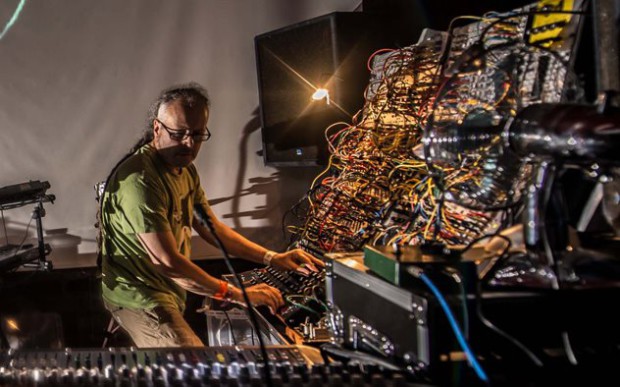
 Fr
Fr Eng
Eng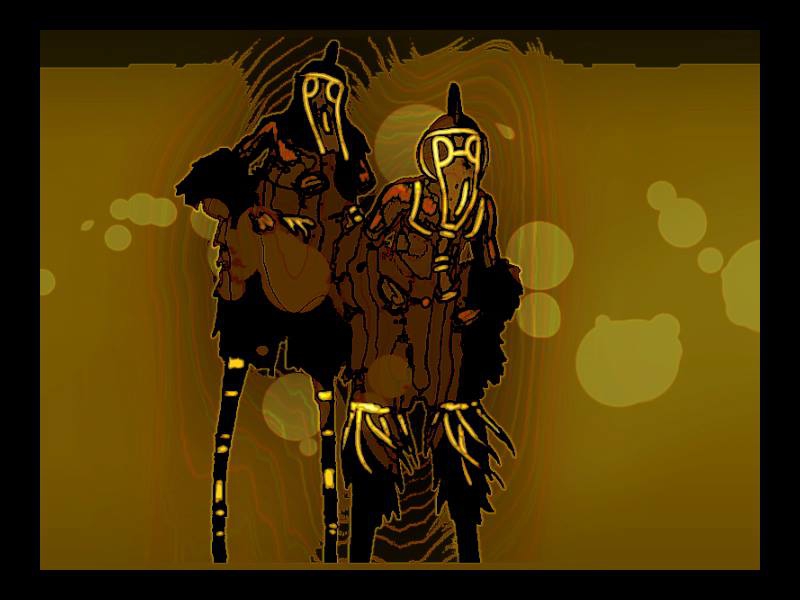
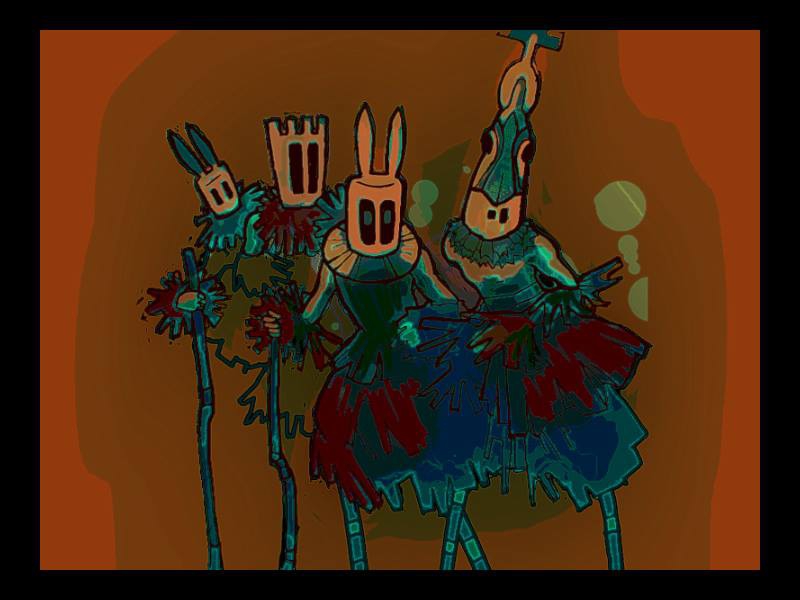
![Steevio - Modular Techno Vol.3 [Mindtours]](http://www.inputselector.fr/wp-content/uploads/2014/02/Steevio-Modular-Techno-Vol.3-Mindtours.jpg)
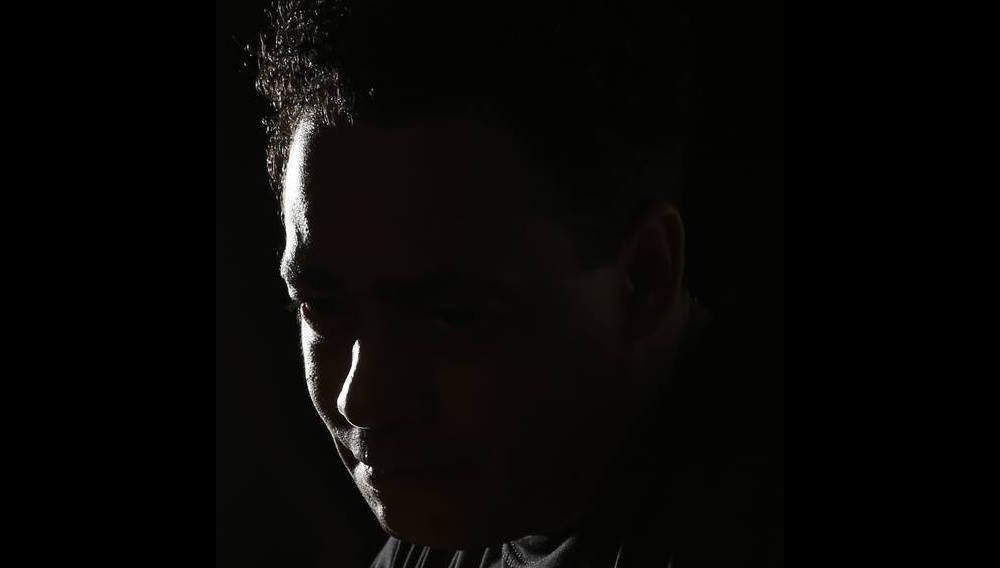
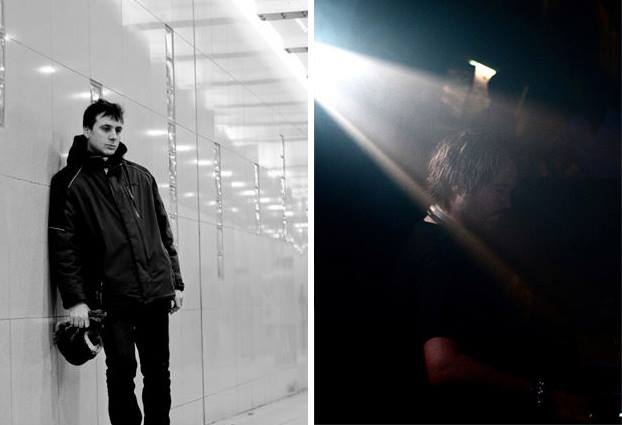
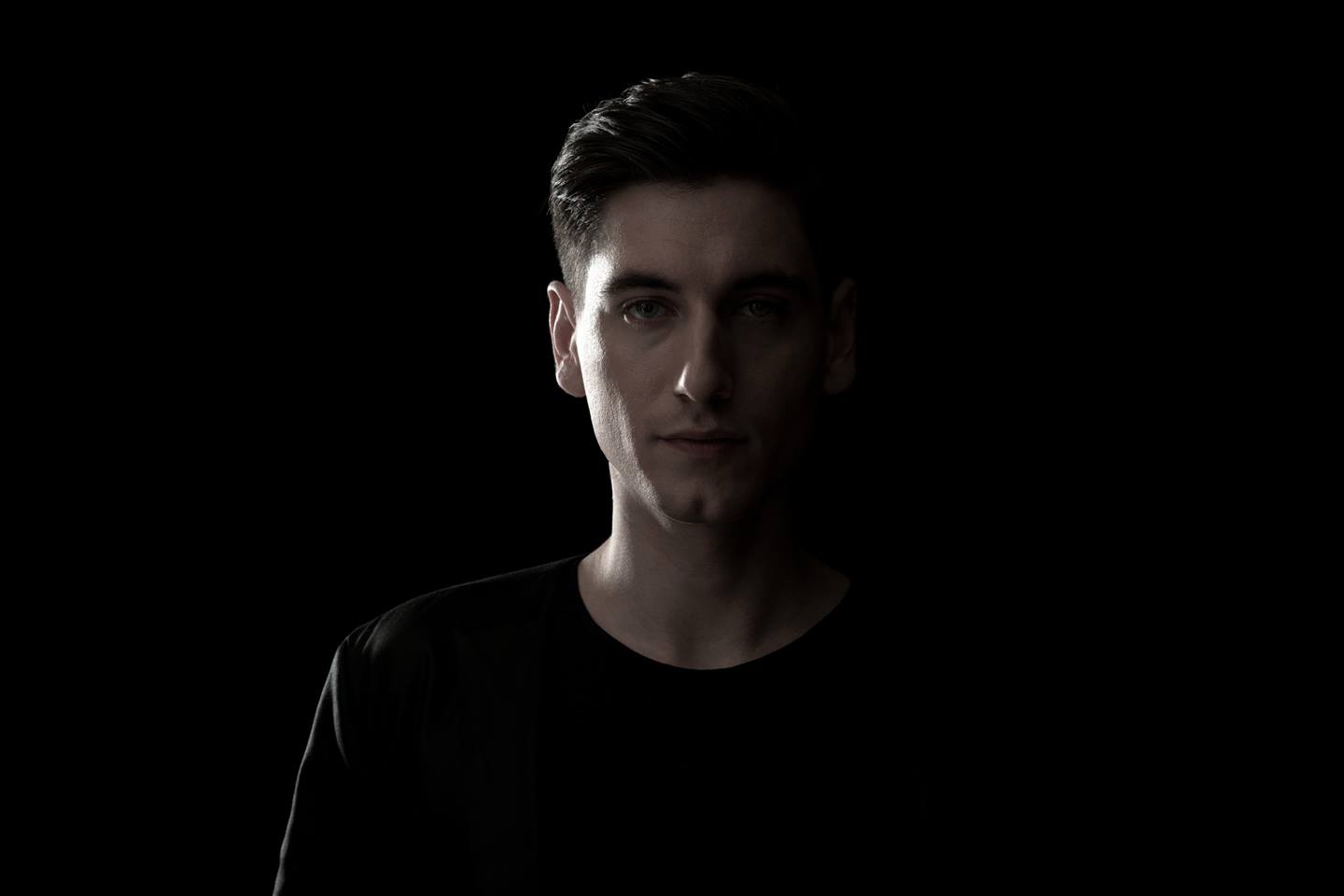
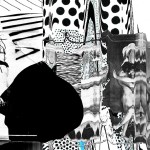
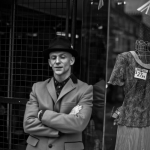
![IS 175 – Blind Observatory [I/Y, Moments] Blind Observatory Input Selector](http://www.inputselector.fr/wp-content/uploads/2014/04/BlindObservatoryInputSelector-300x200.jpg)
![IS 312 – Antislash [Prospector, Salon, Circus Company] IS 312 – ANTISLASH [PROSPECTOR, SALON, CIRCUS COMPANY]](http://www.inputselector.fr/wp-content/uploads/2016/12/IS-312-–-ANTISLASH-PROSPECTOR-SALON-CIRCUS-COMPANY-300x200.jpg)
![IS 240 – BLD [BLD Tape Recordings] baldo](http://www.inputselector.fr/wp-content/uploads/2015/07/baldo-300x200.jpg)